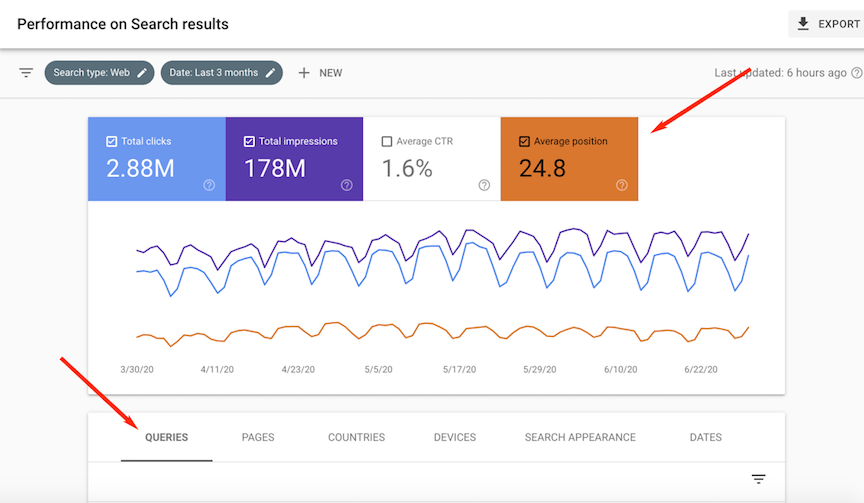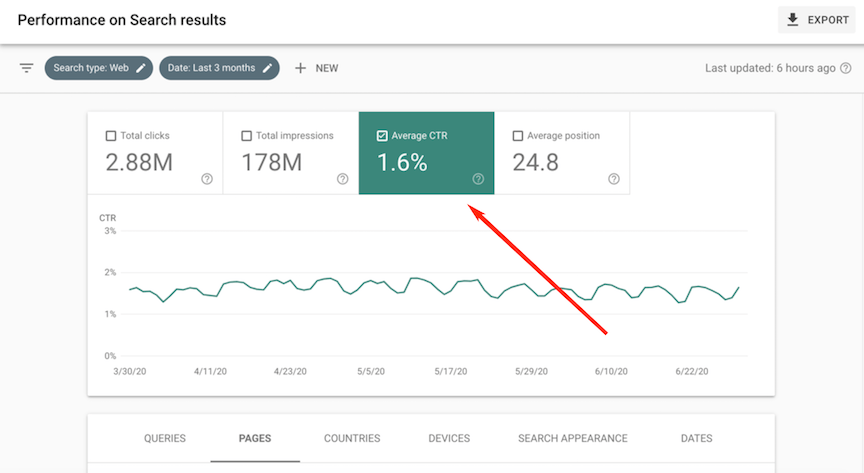Unlock the secrets of SEO success with benchmarking – measure, analyze, and elevate your website’s performance to new heights.

Image courtesy of via DALL-E 3
Table of Contents
Introduction to Benchmark SEO
Welcome to the exciting world of Benchmark SEO! Today, we’re going to explore what Benchmark SEO is all about and why it’s so important for businesses and websites.
What is Benchmark SEO?
Benchmark SEO is like a report card for your website’s performance on search engines like Google. It helps you understand how well your website is doing in terms of visibility and ranking on search results. Think of it as a way to measure how popular and successful your website is online.
Why is it Important?
Measuring and improving your SEO performance is crucial because it can directly impact how many people visit your website. The higher you rank on search engines, the more likely people are to click on your website and learn about what you have to offer. By setting benchmarks and tracking your progress, you can work towards increasing your website’s visibility and attracting more visitors.
Understanding SEO Metrics
When it comes to improving your website’s performance on search engines like Google, understanding SEO metrics is essential. These metrics help you evaluate how well your website is doing and where you can make improvements. Let’s take a closer look at some key SEO metrics that can help you boost your online visibility.
Keywords Ranking
Keywords ranking is about how well your website ranks for specific keywords on search engine results pages (SERPs). When someone searches for a term related to your business, you want your website to appear at the top of the results. This can drive more traffic to your site and increase your chances of converting visitors into customers.
Website Traffic
Website traffic refers to the number of visitors your site receives. By monitoring your website traffic, you can see how many people are visiting your site, where they are coming from, and which pages they are viewing. This information can help you understand what content is resonating with your audience and where you can make improvements.
Bounce Rate
The bounce rate is the percentage of visitors who leave your site after viewing only one page. A high bounce rate can indicate that your website isn’t engaging visitors or providing the information they are looking for. By reducing your bounce rate, you can increase the chances of visitors exploring more of your site and taking desired actions.
Tools for Measuring SEO Performance
When it comes to improving your website’s visibility on search engines, it’s essential to measure your SEO performance. By using the right tools, you can track your progress and make data-driven decisions to enhance your online presence. Here are some key tools that can help you measure and analyze your SEO performance:

Image courtesy of www.webfx.com via Google Images
Google Analytics
Google Analytics is a powerful tool that provides valuable insights into your website’s performance. It allows you to track website traffic, user behavior, and engagement metrics. With Google Analytics, you can monitor key performance indicators, such as organic search traffic, bounce rate, and conversion rates. By analyzing this data, you can identify areas for improvement and optimize your website for better SEO results.
SEMrush
SEMrush is another popular SEO tool that offers a comprehensive suite of features for measuring SEO performance. It allows you to conduct keyword research, track keyword rankings, and analyze backlinks. SEMrush also provides insights into your competitors’ strategies, helping you benchmark your performance against industry leaders. By leveraging SEMrush, you can gain a competitive edge and improve your website’s search engine rankings.
Moz
Moz is a trusted SEO tool that offers a range of features for measuring and monitoring your SEO performance. It provides site audits, keyword research tools, and competitive analysis reports. Moz also offers a domain authority metric, which assesses the overall strength of your website’s backlink profile. By utilizing Moz, you can gain valuable insights into your SEO efforts and make informed decisions to enhance your digital marketing strategy.
How to Set SEO Benchmarks
Setting SEO benchmarks is essential for measuring and improving your website’s performance on search engines. By establishing clear goals and targets, you can track your progress and make necessary adjustments to enhance your SEO strategy. Here are the steps to set effective SEO benchmarks:
Identify Your Goals
Before setting benchmarks, it’s crucial to identify what you want to achieve with your SEO efforts. Whether it’s increasing website traffic, improving keyword rankings, or boosting online sales, clearly defining your goals will help you create specific benchmarks to measure success.
Analyze Competitors
Analyzing your competitors can provide valuable insights into industry trends, best practices, and areas for improvement. By benchmarking your performance against competitors, you can set realistic goals and stay competitive in the online landscape.
Set Performance Targets
Once you have identified your goals and analyzed competitors, it’s time to set performance targets. These targets should be realistic, measurable, and aligned with your overall business objectives. Whether it’s increasing organic traffic by 20% in six months or ranking on the first page for specific keywords, setting clear targets will guide your SEO strategy.
Tracking SEO Performance
Once you have set your SEO benchmarks and implemented strategies to improve your performance, it’s essential to continuously track and monitor how well your website is doing in search engine results. This ongoing monitoring allows you to see if your efforts are paying off and gives you insights into areas that may need adjustment.

Image courtesy of fatjoe.com via Google Images
Regular Monitoring
Regularly monitoring your SEO performance involves keeping an eye on key metrics such as keyword rankings, website traffic, and bounce rates. By tracking these metrics over time, you can see if your website is moving up in search results, attracting more visitors, and keeping them engaged.
Tools like Google Analytics, SEMrush, and Moz can help you gather data on how well your website is performing in search engines. These tools provide valuable insights into which keywords are driving traffic to your site, how users are interacting with your content, and where there may be room for improvement.
Adjusting Strategies
Based on the data you gather from monitoring your SEO performance, you may need to adjust your strategies to continue improving. For example, if you notice that certain keywords are not ranking as well as you hoped, you may need to optimize your content further or target different keywords.
Similarly, if you see a high bounce rate on certain pages, it may indicate that these pages are not meeting user expectations. By analyzing user behavior and making adjustments to your content or website structure, you can work towards reducing bounce rates and keeping users engaged.
Continuously tracking and monitoring your SEO performance allows you to make informed decisions about how to improve your website’s visibility in search engine results. By staying proactive and making adjustments as needed, you can work towards achieving your SEO goals and reaching a larger audience online.
Common SEO Mistakes to Avoid
One common mistake to avoid in SEO is ignoring mobile optimization. Mobile optimization is crucial because many people use their smartphones or tablets to browse the internet. To ensure your website is mobile-friendly, you should use responsive design, which means your site will adjust to different screen sizes. This ensures that users have a seamless experience no matter what device they are using.
Keyword Stuffing
Keyword stuffing is another mistake to steer clear of. Keyword stuffing is when you excessively use keywords in your content in an attempt to manipulate search engine rankings. This not only makes your content less readable for users but can also lead to penalties from search engines. Instead, focus on naturally incorporating keywords into your content to make it valuable and informative for your audience.
Neglecting Content Quality
Neglecting content quality is a big no-no in SEO. High-quality content is essential for engaging users and keeping them on your site. Content that is relevant, informative, and well-written not only helps your SEO but also builds trust with your audience. Make sure to regularly update and refresh your content to keep it current and engaging for visitors.
Improving Your SEO Performance
Improving your SEO performance is essential to ensure that your website ranks higher on search engines and attracts more visitors. By following these simple tips and strategies, you can enhance your SEO game and drive more traffic to your site.

Image courtesy of www.webfx.com via Google Images
Content Quality
One of the most crucial aspects of SEO is having high-quality content on your website. Search engines like Google prioritize websites that offer valuable and relevant information to users. To improve your SEO, focus on creating engaging and informative content that addresses the needs of your target audience. Make sure your content is well-written, easy to read, and optimized with relevant keywords.
Use of Keywords
Keywords play a significant role in SEO as they help search engines understand the content of your website. To improve your SEO performance, conduct keyword research to identify the most relevant and high-ranking keywords in your niche. Once you have identified these keywords, strategically incorporate them into your content, headings, meta tags, and URLs. By using keywords effectively, you can boost your website’s visibility and attract more organic traffic.
Technical SEO
Technical SEO involves optimizing the backend of your website to improve its crawling and indexing by search engines. To enhance your technical SEO, focus on factors such as site speed, mobile-friendliness, secure HTTPS protocols, XML sitemaps, and structured data markup. By ensuring that your website is technically sound and user-friendly, you can improve your search engine rankings and provide a better user experience for your visitors.
Conclusion
In conclusion, Benchmark SEO is a critical aspect of any successful online presence. By measuring and improving SEO performance, websites can attract more visitors and achieve better visibility on search engines. Throughout this article, we have discussed the importance of Benchmark SEO, understanding SEO metrics, tools for measuring performance, setting benchmarks, tracking progress, common mistakes to avoid, and strategies for improvement.
Key Takeaways
It is vital to regularly monitor your SEO performance using tools like Google Analytics, SEMrush, and Moz. Setting realistic goals, analyzing competitors, and continuously adjusting your strategies are key steps in improving SEO performance. Avoiding common mistakes such as neglecting mobile optimization, keyword stuffing, and content quality is crucial for success.
Next Steps
For those looking to enhance their SEO performance, focusing on improving content quality, effectively using keywords, and optimizing technical aspects of SEO can make a significant difference. By implementing these strategies and continually monitoring and adjusting your approach, you can see tangible improvements in your website’s visibility and traffic.
Want to turn these SEO insights into real results? Seorocket is an all-in-one AI SEO solution that uses the power of AI to analyze your competition and craft high-ranking content.
Seorocket offers a suite of powerful tools, including a Keyword Researcher to find the most profitable keywords, an AI Writer to generate unique and Google-friendly content, and an Automatic Publisher to schedule and publish your content directly to your website. Plus, you’ll get real-time performance tracking so you can see exactly what’s working and make adjustments as needed.
Stop just reading about SEO – take action with Seorocket and skyrocket your search rankings today. Sign up for a free trial and see the difference Seorocket can make for your website!
Frequently Asked Questions (FAQs)
How often should I benchmark my SEO performance?
It is advisable to benchmark your SEO performance regularly, ideally every month. By benchmarking on a monthly basis, you can track your progress, identify trends, and make necessary adjustments to improve your website’s performance.
What are the best tools for beginners?
For beginners in SEO, some user-friendly tools to consider are Google Analytics, which provides valuable insights into website traffic and user behavior, and SEMrush, a comprehensive tool for keyword research and competitor analysis. Another useful tool is Moz, which offers features like site audits and keyword ranking tracking.
Can I improve my SEO without spending money?
Yes, you can definitely improve your SEO without spending a fortune. Some budget-friendly tips include optimizing your website for mobile devices, creating high-quality content with relevant keywords, and enhancing your website’s technical aspects such as improving page speed and fixing broken links. Additionally, engaging with your audience on social media platforms and earning backlinks from reputable websites can also boost your SEO performance without incurring significant costs.







